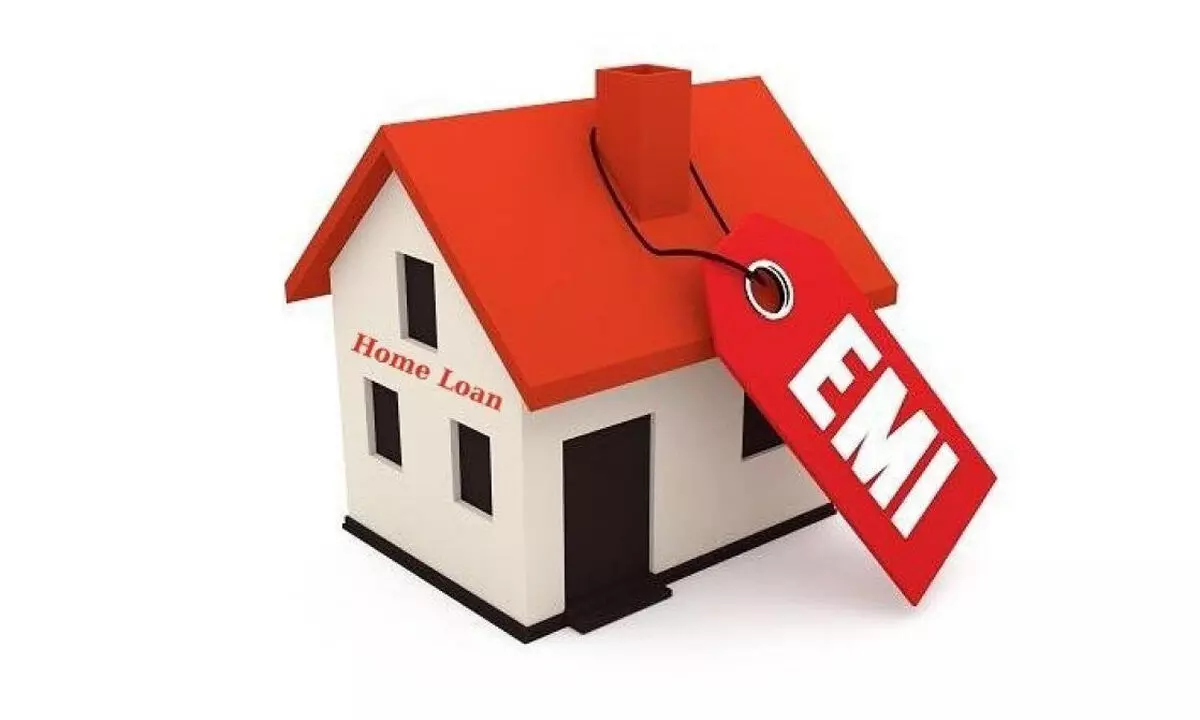RBI rate hike makes home loan EMIs costlier
Realtors hope that the State governments will step-in to lighten the homebuyer’s load by reducing stamp duty to boost the sentiments
image for illustrative purpose

Mumbai: The Reserve Bank of India (RBI) Governor Shaktikanta Das announced the Monetary Policy statement recently, increasing the repo rate by 25 bps as widely expected. The repo rate hike will undoubtedly push up the home loan interest rates, which had already crept up after five consecutive rate hikes this year.
Talking to Bizz Buzz, Kaushal Agarwal - Chairman, The Guardians Real Estate Advisory, says, “Consecutive rate hikes by the RBI this year were aimed at re-anchoring the inflation expectations and maintaining financial stability. Thus far, the rising cost of house ownership led by higher EMI, higher stamp duty and other factors has not affected real estate sales, which is a firm indicator of genuine demand for housing.”
But any further hike in the repo rate might temporarily limit the growth momentum of the real estate sector. Although the recently concluded budget was tailor-made keeping the salaried and the middle class in mind, a rate cut at this stage could have triggered the sentiments of the homebuyers sustaining the growth momentum," he said.
Pritam Chivukula, Co-Founder & Director, Tridhaatu Realty and Treasurer, CREDAI MCHI, says, “RBI's decision to hike the interest rates to tackle the inflation and ensure domestic economic recovery was a no-brainer. But a rate cut would have been a big booster for the real estate sector which was overlooked in the recently concluded budget.”
The sharp acceleration of rates consecutively for the sixth time in a short period will have a short-term effect on the sentiment of homebuyers as low interest rates have been the biggest factor in the resurgence for real estate demand in the last couple of years.
According to Chivukula, “We hope that the State governments will step-in again to lighten the homebuyer’s load by reducing stamp duty to boost the sentiments.”
Himanshu Jain, VP - Sales, Marketing and CRM, Satellite Developers, “Keeping the current market conditions and inflation in mind, the move by the RBI was expected to keep the economy on the track in the current highly volatile scenario. The rising property prices had already added to the woes of the homebuyers and now the decision of RBI to increase the repo rate will temporarily dent the current demand momentum.”
Also, for first-time home buyers, acquiring a home is considered as the biggest asset and these short-term decisions are likely to have a major impact on a buyer’s decision.
Bhushan Nemlekar, Director, Sumit Woods, says, “Earlier, due to the pandemic and the geopolitical issues, the input costs were already high and now with these consecutive rate hikes, it will only dampen the spirit of the entire real estate value chain.”
The cost of borrowing for both developers and buyers will be impacted and this will result in undesired rate hikes across the spectrum. However, we did not see much impact on the buying spree in the last couple of quarters since there are genuine buyers in the market to keep the momentum going, he said.
Sachin Chopda, MD, Pushpam Group, says: "RBI's decision to hike the policy repo rate was anticipated, factoring the rise in inflation. The rate hike is likely to shrink liquidity in the economy overall, especially impacting the investor’s sentiments. There will be a short-term pause on the minds of the investors while assessing the volatility of the current market dynamics. However, they are bound to return soon in the market once it is stable.”
However, another section of experts believe that the rate hike may not impact the demand of housing. This hike will further help moderate inflation in the economy. A 25bps hike in Standing Deposit Facility (SDF) and Marginal Standing Facility (MSF) rate respectively to withdraw surplus liquidity would further support in stabilising inflation in the economy, they opine.
Since the beginning of the rate hike cycle, which began in May 2022, the RBI has hiked its repo rate by 250 bps. With an MCLR rate of 8.4 per cent, about 60 per cent of the repo rate hike, so far, has already transmitted into the lending rates. Thus, the borrowing costs have significantly increased across the product categories including the housing sector. Post today’s rate hike, borrowing costs could be expensive by 10–15 bps on an immediate basis.
The impact of interest rate hike on the housing sector has been limited. The Knight Frank affordability index has deteriorated marginally by an average 1.4 per cent over the last year. Demand for home loans has remained strong during the last year, as seen in 16 per cent growth in December 2022.
Shishir Baijal, Chairman & Managing Director, Knight Frank India, says, “We hope that this rate hike will not adversely impact consumer sentiments towards home purchases in the coming financial year.”
The RBI also shared that the GDP growth has moved upwards to 7 per cent from the previous estimates of 6.8 per cent. In terms of growth, India remains a bright spot while other key economies face recession risks, he added.

